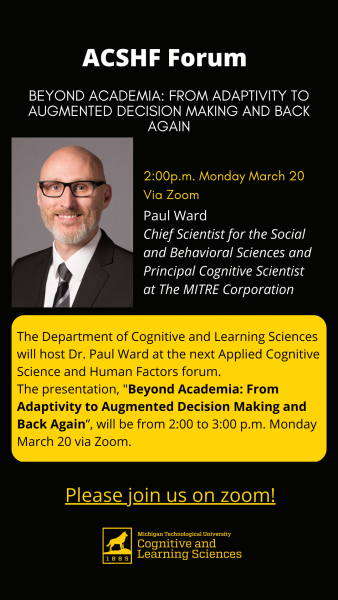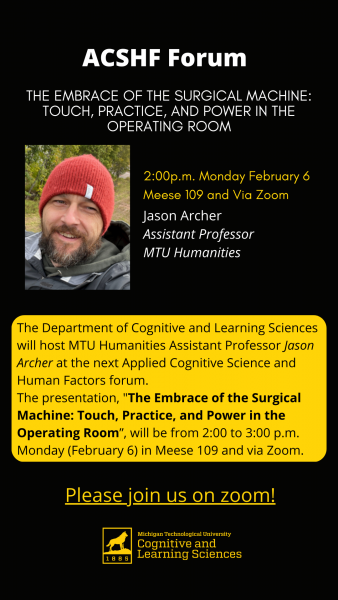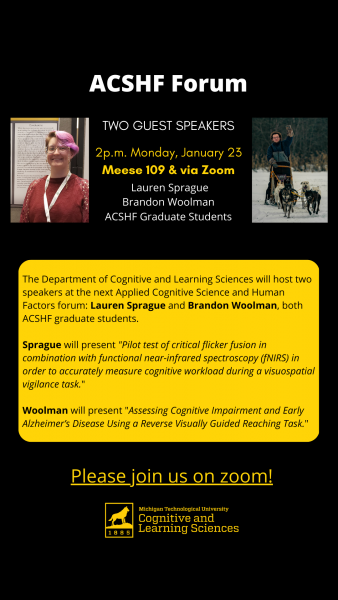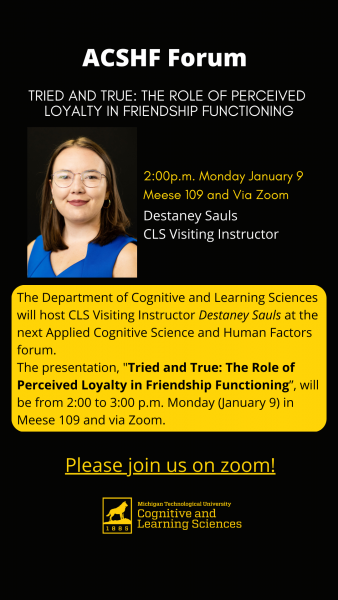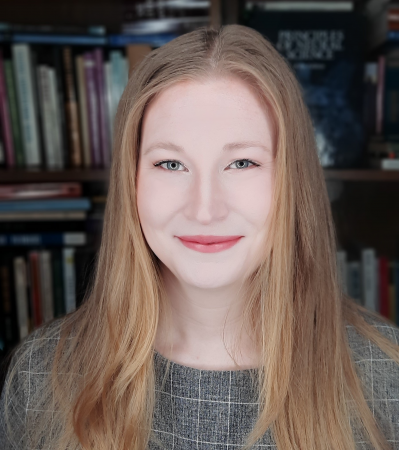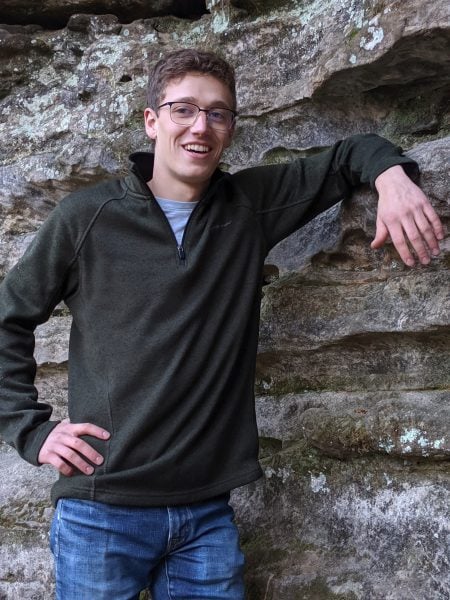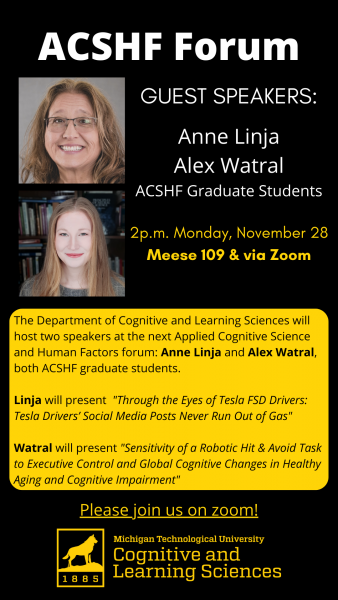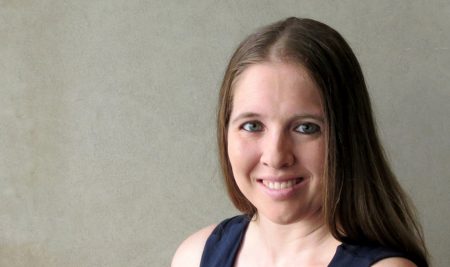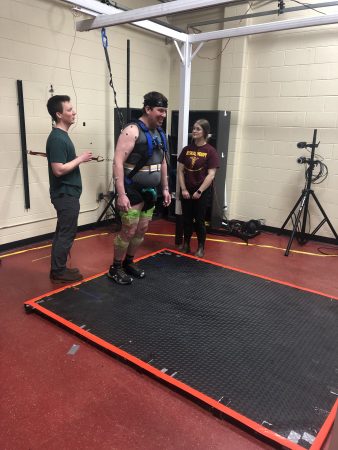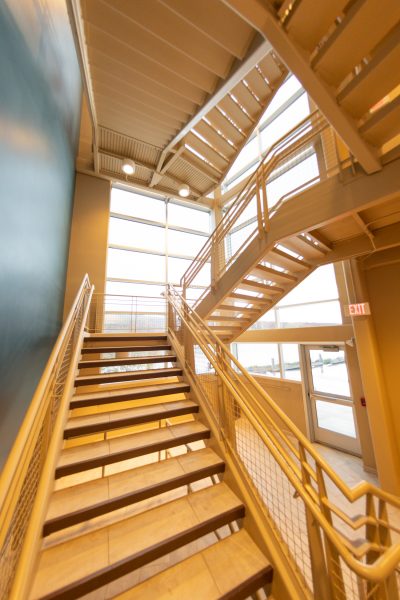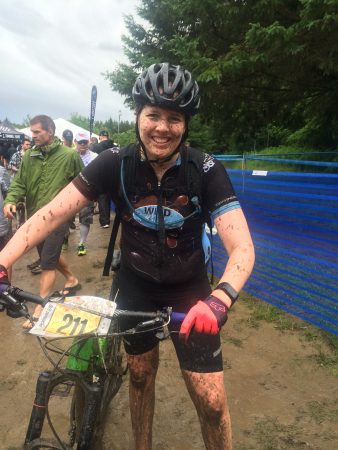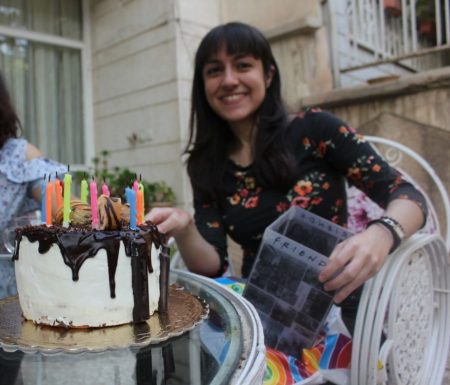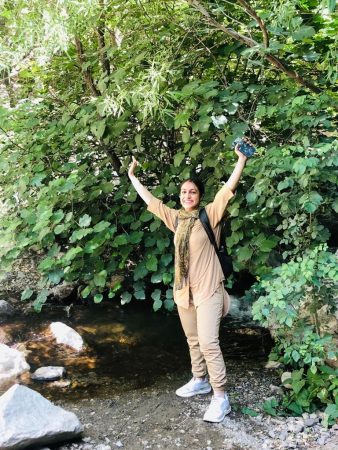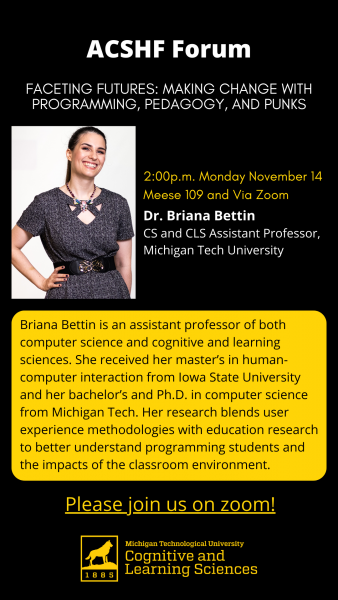The Department of Cognitive and Learning Sciences will host Dr. Paul Ward at the next Applied Cognitive Science and Human Factors forum.
The presentation, “Beyond Academia: From Adaptivity to Augmented Decision Making and Back Again”, will be from 2:00 to 3:00 p.m. Monday March 20 via Zoom.
Abstract:
In this presentation, I will provide an overview of my research conducted on both sides of the research
isle—as a university academic and as a scientist supporting government sponsors. This overview will
span a range of topics from expertise and adaptive skill to technology-enabled decision superiority to
human-centered AI assurance. Specifically, I will summarize a handful of research projects examining
the training principles required to develop expert levels of adaptive skill, the impact of providing humans
with more AI-enabled courses of action than they could generate without technological support,
considerations for supporting human-machine teams, and end with a discussion of what it means to assure
human-centered AI. A common theme throughout this research is that context matters, irrespective of
whether we are concerned with developing expertise or human-centered systems, improving system
performance, or empowering humans to achieve their goals. As part of this talk, I will provide a brief
overview of MITRE, the capabilities we offer, and a description of my journey from University Professor
to Chief Scientist. I will end by posing some questions about the pressing future challenges where
transdisciplinary teams, including Human Factors and Applied Cognitive Scientists, could be leveraged to
produce more robust outcomes for a safer, more secure, and more equitable world.
BIO:
Dr. Paul Ward is Chief Scientist for the Social and Behavioral Sciences and Principal Cognitive Scientist
at The MITRE Corporation—a not-for-profit organization based in McLean VA that runs multiple
Federally Funded Research and Development Centers whose aim is to solve problems to create a safer
world. Since joining MITRE in 2019, Dr. Ward’s research has focused on issues related to decision
making, sensemaking, and adaptivity, and on using cognitive science and cognitive engineering methods
to address tough human-in-the-loop problems, such as human-machine teaming, artificial intelligence-
(AI-)enabled decision support, and human-centered AI. In his current role he is responsible for supporting
innovative Department- and Division-level research and developing transdisciplinary and transformative
research priorities, especially those related to enhancing and augmenting human cognition in complex
sociotechnical systems.
Dr. Ward is internationally known for his pioneering research on how expert decision makers think and
adapt to real-world complexity and uncertainty. He has published three books, including The Oxford
Handbook of Expertise, Accelerated Expertise, over 200 scientific papers and book chapters on related
topics, and received grant funding from a range of agencies internationally, including National Science
Foundation, US Office of Naval Research, UK Department for Transport, and UK Ministry of Defense. In
addition, he has also provided expert consultation on related topics to multiple agencies, including the
U.S. Olympic Committee, UK Sport, English Institute of Sport, US Soccer, New York Police
Department, Police Federation of England and Wales, and Norwegian Defence Cyber Academy.
Prior to joining MITRE, Dr. Ward held various university faculty appointments worldwide, including as
Professor of Applied Cognitive Science in the UK and USA. He has taught undergraduate and graduate
level courses in Cognition, Cognitive Task Analysis, Human Factors, Work Psychology, Expertise,
Research Methods, and Statistics. He currently holds an adjunct appointment at Michigan Technological
University as Professor of Psychology, serves on numerous editorial boards and, previously, served as
associate editor for the Journal of Cognitive Engineering and Decision Making and the Journal of
Expertise. Dr. Ward received his PhD in Applied Experimental Psychology in the UK and subsequently
completed two postdoctoral fellowships in Human Factors and Cognitive Science in the USA.
